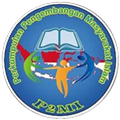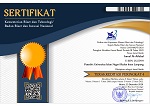UNDERSTANDING PRODUCTIVE ZAKAT DISTRIBUTION PROGRAM APPROACH IN INDONESIA: STUDY FROM BAZNAS KUNINGAN REGENCY
Abstract
This study aims to understand the program approach is used in the distribution of productive zakat funds carried out by BAZNAS Kuningan Regency. This study uses descriptive qualitative methods, data collection techniques of interviews, observation and documentation. The results of the study show that the program approach taken by BAZNAS of Kuningan Regency in distributing productive zakat funds is to use a technical assistance approach. This is due to several reasons, including the first, the role of the program assistant as an expert and adviser through regular training and mentoring activities with mustahik. Second, the way the program works is top down in which this program has been designed by the Central BAZNAS to be implemented at regional BAZNAS. Third, the participation of mustahik in the program is limited because needs and problem assessment, program planning and design, as well as monitoring and evaluation are carried out by BAZNAS without involving mustahik. mustahik are only recipients and connoisseurs of the program. Fourth, program achievements and changes in mustahik economic conditions occur in a fast time. BAZNAS must be careful because even though changes occur quickly, this approach is very prone to causing mustahik dependence on the program
Keywords
Full Text:
PDFReferences
Adi, Isbandi Rukminto, Intervensi Komunitas Pengembangan Masyarakat Sebagai Upaya Pemberdayaan Masyarakat (Jakarta: Rajawali Press, 2008)
Artis, ‘Strategi Pengelolaan Zakat Berbasis Pemberdayaan Masyarakat Miskin Pada Badan Amil Zakat Nasional (Baznas) Kota Pekanbaru’, Jurnal RISALAH, 28.2 (2017), 55–68
Creswell, John W., Research Design Pendekatan Kualitatif, Kuntitatif, Dan Mixed (Yogyakarta: Pustaka Pelajar, 2010)
Huraerah, Abu, Pengorganisasian & Pengembangan Masyarakat (Bandung: Humaniora, 2008)
Idrus ,A & Maman, A, ‘Peran Lembaga Pemberdayaan Ekonomi Mustahik Baznas Dalam Meningkatkan Kesejahteraan Ekonomi Mustahik.’, Al-Kharaj : Jurnal Ekonomi, Keuangan & Bisnis Syariah, 4.2 (2021), 477–94
Ife, Jim, Community Development, Alternatif Pengembangan Masyarakat Di Era Globalisasi (Yogyakarta: Pustaka Pelajar, 2008)
Jaya, Pajar Hatma Indra, ‘“Mas Zakky” Model Zakat Pemberdayaan Dari Baznas Kota Yogyakarta’, Jurnal Pemberdayaan Masyarakat: Media Pemikiran Dan Dakwah Pembangunan, 2.2 (2018), 239–66
Kementrian Agama RI, Zakat Comunity Development Model Pengembangan Zakat (Jakarta: Direktorat Jendral Bimbingan Masyarakat Islam, 2013)
Mardikanto, Totok, Pemberdayaan Masyarakat Dalam Perspektif Kebijakan Publik (Bandung: Alfabeta, 2017)
Muhajirin, M. (2021)., ‘Analisis Pendistribusian Zakat Produktif Pada Badan Amil Zakat Nasional (BAZNAS) Lombok Barat’, Jurnal Econetica: Jurnal Ilmu Sosial, Ekonomi, Dan Bisnis, 3.1 (2021), 36–45
Pusat Kajian Strategis Baznas, Outlook Zakat Indonesia 2021 (Jakarta, 2021)
Ridho, Hilmi, Zakat Produktif Konstruksi Zakatomics Perspektif Teoritis, Historis, Dan Yuridis (Malang: Literasi Nusantara, 2020)
Robinson, Jery W., Introduction to Community Development: Theory, Practice, and Sevice-Learning (California: Sage Publication, 2011)
Soetomo, Strategi-Strategi Pembangunan Masyarakat (Yogyakarta: Pustaka Pelajar, 2006)
Suryadi, ‘Penembangan Masyarakat (Sebuah Kerangka Konseptual)’, Empower: Jurnal Pengembangan Masyarakat Islam, 3.1 (2018)
DOI: http://dx.doi.org/10.24042/ijpmi.v16i1.15882
Refbacks
- There are currently no refbacks.
Jurnal Ijtimaiyya is licensed under a Creative Commons Attribution-ShareAlike 4.0 International License.






1.png)
11.png)
.png)



